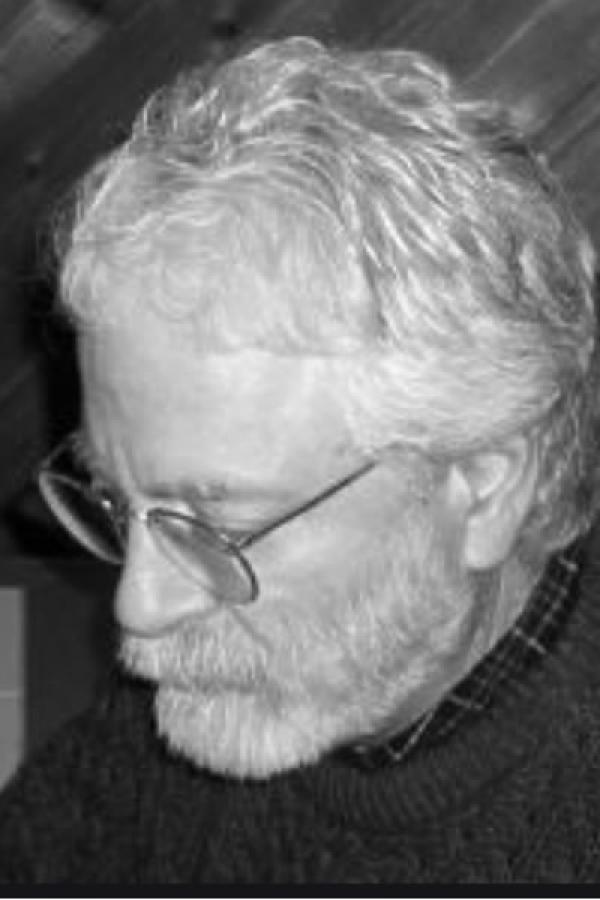Robert Gibb

Photo by Matthew Gibb
Bio
Robert Gibb was born in the steel town of Homestead, Pennsylvania. He is the author of seven books of poetry: The Names of the Earth in Summer (Stone Country's 10th Anniversary Award Volume, 1983); The Winter House (Devin's Award Finalist, University of Missouri Press, 1984); Momentary Days (Camden Poetry Award, Walt Whitman Center, 1989); Fugue for a Late Snow (University of Missouri Press, 1993); The Origins of Evening (National Poetry Series Winner; W.W. Norton and Company, 1999); The Burning World (University of Arkansas Press, 2004); and World over Water (University of Arkansas Press, 2007). What the Heart Can Bear, a book of selected poems, was published by Autumn House Press in 2009. Other awards include a Pushcart Prize, seven Pennsylvania Council on the Arts grants, The Wildwood Poetry Prize, and the Devil's Millhopper Chapbook Prize. He lives on New Homestead hill above the Monongahela River.
Author's Statement
First, my thanks to the NEA and the members of the panel for this fellowship. Aside from the honor it affords, for me the grant means time in which to work and a calendar in which the daily rhythms surround it, free of competing concerns. I am now beginning work on a new manuscript, tentatively titled Junco, which I hope to have ready for publication by the end of the grant year. Like my last three books, the focus will be Pittsburgh, although in a more recent past, and the grant means residence here as well--or rather support for it--the access to libraries and museums and the daily touchstones which supply the ground for the poems.
THE EMPLOYMENTS OF TIME IN HOMESTEAD
All these families, the whole community that I knew,
was totally blasted . . . They weren?t there anymore.
And so, that was the way that was, when I went back.
--Thomas McGrath
"Where is home?"
--Robert Culp
1
According to the haphazard loom of heaven,
Or something in the air,
The mail gets shoved up under the brass flap
Of the slot anytime between morning
And the shadows of afternoon. I'll be done
At my desk or not, depending on the rhythms,
Then prowl through the rented rooms
Before walking out back to kneel among
The new green leaves of the garden,
Or, today, watching that mouse on the sidewalk
Scamper in circles like a mechanical toy,
Its bloodstream hopping with D-Con.
2
This is home in the loaned house in the city
Where I was born, north of the river
Whose rusts still tint the opening blossoms
Of the dogwood and bleed through the cast-off
Metals of scrap heaps and corroding sheds.
These days, down there, men can't even make
The living promised to the bread of their sweat.
It will take some time getting used to the dead
Gray light in Homestead, the mill shore as naked
As the shaved skin around a scar.
Time getting used to the Warsaw
Of boarded and burned-out stores,
Blocks of rubble where my father's office stood
And traffic stopped as the gates clanged down,
The great train of names on the box-cars
Came rumbling past.
3
There beneath his grasses my father's ashes
Quicken with the coming rains.
Today, the mills his father was killed in,
That his mother kept him from, are also graves
Filled with traces of metal, the ore yards
Are one long tomb. Here finally,
A century later, they're dedicating a plaque
In honor of the unmarked plots of those fallen
In Homestead when the Pinkertons attacked:
Handfuls of words being carried out
Over handfuls of earth . . . From up the slope
I catch snatches of that sermon
About sufferings and rust, lockouts, the seeds
Sown like ashes in dust or stony ground,
And how all of it, eventually,
Enters the new world for which they worked.
Excerpted from The Employments of Time in Homestead

